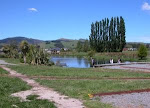A dry home is a warm and healthy home. Keep your home dry in the winter months by:
- Drying your laundry outside as much as possible. If you have a dryer, use it only when you have to and make sure it is ventilated to the outside of your house. Make sure you clean out the lint filters after each use so your dryer stays as efficient as possible.
- When using the bathroom, turn on the fan (if you have one). Open the windows a little while you are using the bathroom and open them wide once you have finished. Keep the bathroom door closed as soon as you turn the water on. This ensures that the steam does not get into the rest of the house and that it is directed outside. Keep your showers short to minimise steam and save on hot water.
- In the kitchen, keep the lids on saucepans and the kettle and turn down the heat when cooking.
- Wipe any condensation that you have on your windows off each morning.
- Ventilate your house on fine, winter days by opening up all the doors and windows at the warmest time of day for about 20 minutes. If you are not home in the middle of the day then try to do it for a few minutes before you leave in the morning.
- If you have mold anywhere, use white vinegar and apply it generously to the area that has the mold with a spray bottle or a cloth. Leave it for one hour to do its work, then gently scrub the mold off with warm water and wipe off excess water
- Avoid unflued gas heaters - which release toxic fumes and make your house damp. Cheap portable electric heaters are safer and cost less to run.
If you can spend some money and or time and you live in an older home, here are some other things that you can do to improve the health of your home:
- Put down a black plastic sheet under the house as a barrier to water vapour coming out of the soil.
- Ensure all the vents under you house are clear.
- Fix any leaky pipes or leaky guttering.
- If your windows are single glazed then you could consider double glazing them, or if the expense is too great then try this DIY method using window insulation film (see more about doing this here).
- If your floor or ceiling are not insulated then consider insulating them.




